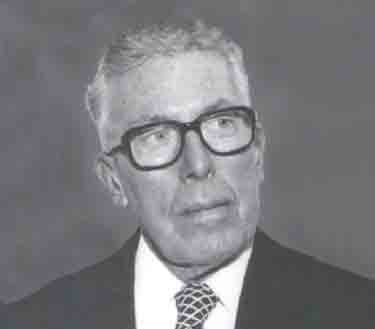Whitlock, Carl H.

Carl H. Whitlock
Whitlock
Inducted 1979
Carl Whitlock (1901 – 1983), a native of Rochester, NY, is credited with creating innovative designs and developing original material-handling equipment that helped the plastics industry move into mass production. Developments include the pneumatic hopper loader, the first remote-powered vacuum hopper loader, and the first multiple-loading system using a single vacuum pump.
Whitlock, who had partial hearing loss due to an early childhood illness, attended the Rochester School for the Deaf but managed to overcome his deafness. His college career was cut short by a football injury. However, as an ambitious young man, he had jobs running a service station and worked as a product designer for an appliance manufacturer.
In 1929, Whitlock worked with the plastics manufacturer Norton Laboratories, Inc. in Lockport, N.Y., working for J.B. Neal. The range of available plastic materials then was limited; Norton produced its products from thermoset plastics. Carl Whitlock was responsible for many innovative product designs. Among them was a molded wristwatch case for Elgin that acted as a package and a display case for the watch. He was also instrumental in the design and development of the Norton Camera. This 50-cent depression era product featured a completely molded lightproof case and the only special film roll Kodak ever produced for a non-Kodak camera.
In 1935, Whitlock took a job at General Industries in Elyria, Ohio. He continued designing products and molds and was introduced to some of the new thermoplastics then on the market. Sales and travel were also part of his job.
In 1939, Whitlock moved to Akron, Ohio, and several months later to Fall River, Massachusetts, for the Firestone Plastics Division of Firestone Tire and Rubber Co. With war clouds looming in 1940, the latent entrepreneur in Whitlock emerged. He formed a one-man firm, C. Huber Whitlock, took a government contract, and produced injection molds for gas mask lenses in a design that was used throughout World War II and the Korean War.
He closed the firm and, in 1941, accepted a position with Monsanto Chemical Co. Plastics Division in Indian Orchard, Massachusetts. During the war years, Monsanto developed materials for military use. The M35 adjustable timed plastic fuse was used on artillery and mortar shells, and Whitlock was instrumental in its development and testing. In 1944, he was made Plastics Division Sales Manager in Monsanto’s Detroit office. This time, material shortage, rationing, and allocation continued following the war. Carl Whitlock used his people skills and diplomacy to keep customers satisfied.
The Society of Plastics Engineers was founded in Detroit in 1942, and Carl Whitlock became a member. In 1946, the SPE held an exhibition in Detroit that evolved into the Annual Technical Conference. “Whit,” as he was known, was heavily involved in that effort.
In 1948, he surfaced with the desire for his own business and formed Whitlock Associates, a sales representative company, with Mary Denny (later Mary Whitlock). The firm sold plastic materials and represented equipment suppliers to the plastics industry.
In 1953, he developed a pneumatic hopper loader for the plastics industry in his garage. By this time, family members had entered the firm as sales help, and the loaders were assembled and packaged in the office’s basement in Oak Park, Michigan. Soon, increased sales and newly developed products required a leased manufacturing facility. The next innovative device was a dehumidifying dryer to condition materials at the molding or extrusion machine.
In 1957, the firm was incorporated. A vacuum loader was designed to move larger quantities of plastic materials economically. Development of conveying and storage systems followed, as did several items of complementary auxiliary equipment. The business grew, eventually adding complete machining and fabricating facilities and employing over 100 people by 1967.
Carl Whitlock was committed to its growth throughout his entire career in the plastics industry. He supported and was active in the Society of Plastics Engineers from its inception. His company participated in and supported meetings and programs and presented papers at many ANTECs and numerous local SPE chapter meetings. In 1967, Carl Whitlock was General Chairman of the Silver Anniversary ANTEC held in Detroit, commemorating the 25th year of SPE.
He was also an active member of Plastics Pioneers. The company exhibited at the Society of the Plastics Industry (now PLASTICS) show in 1954 in Cleveland and continued participating throughout his business life. His philosophy was simple and direct. When reminded of his many accomplishments, he said, “Well, I just sold the equipment to my friends.”

